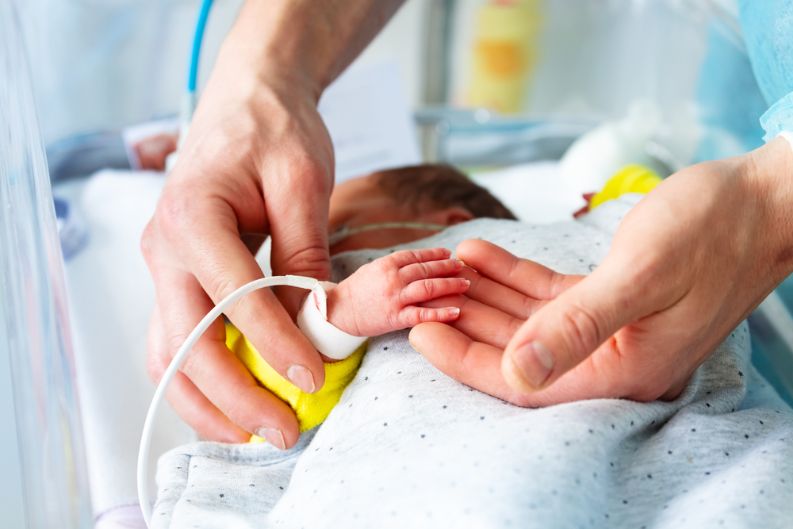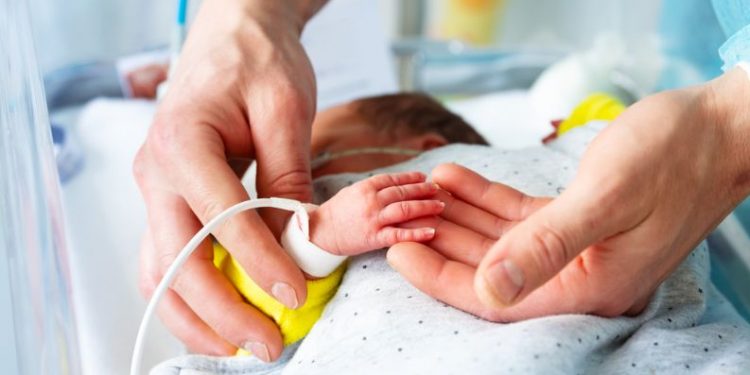About one in four pregnant women have group B streptococcus (GBS) in their rectum or vagina. The infection usually does not cause problems in healthy adults, but can make newborn babies sick.
Symptoms of GBS Disease
Infection with group B streptococcus is most common in babies who are born prematurely or have other health conditions that affect their immune systems. But it can also happen in full-term babies and in infants who have chronic illnesses. The bacteria can be passed from mothers to babies during labor and birth or from newborns to their parents or caregivers after birth.
Early-Onset GBS Infections
Most infections in babies with early-onset GBS occur during the first week of life. Signs include fever, coughing or irritability and trouble feeding.
Bacteremia is the most common symptom in this type of GBS infection, accounting for 80% of cases. Pneumonia, sepsis and meningitis are less common but can be very serious in this kind of infection.
During delivery, antibiotics are given to women who test positive for GBS to help prevent the spread of the infection to their babies. These antibiotics are safe and usually work well. They are most effective if given at least four hours before childbirth.

Your Healthcare Providers Can Screen You for Group B Strep
Healthcare providers can test you to see if you have group B strep during routine prenatal care. If your pregnancy test shows that you have GBS, you will be referred to the hospital for treatment right away. This medicine is called intravenous antibiotics and can be given to you during labor and birth through an IV.
The most effective antibiotics for treating women with group B strep are penicillin or ampicillin. These medicines are safe for you and your baby, but some women may have a mild allergic reaction to them, such as a rash.
You and Your Baby Need to Know What Causes Group B Strep in Babies
The main way that babies get group B strep is from their mother’s genital tract during pregnancy. About 1 out of every 200 babies that are born to women who carry GBS will develop the infection.
In this situation, symptoms usually start within the first 24 hours of birth. Most babies have fever, irritability, trouble sleeping and difficulty breathing.
Other signs of the infection can include a low white blood cell count, redness and swelling in the mouth or throat. Your baby might also have trouble breathing or may have floppy arms and legs. If these symptoms are severe, contact your healthcare provider immediately and call triple zero (000) for an ambulance.
What Are the Symptoms of Late-Onset GBS Infection?
In late-onset GBS, signs and symptoms begin weeks to months after your baby is born. They can include fever, drowsiness or seizures. Your doctor will need to take a sample of your baby’s blood or fluid from around their spinal cord (a lumbar puncture) to see if they have GBS.









